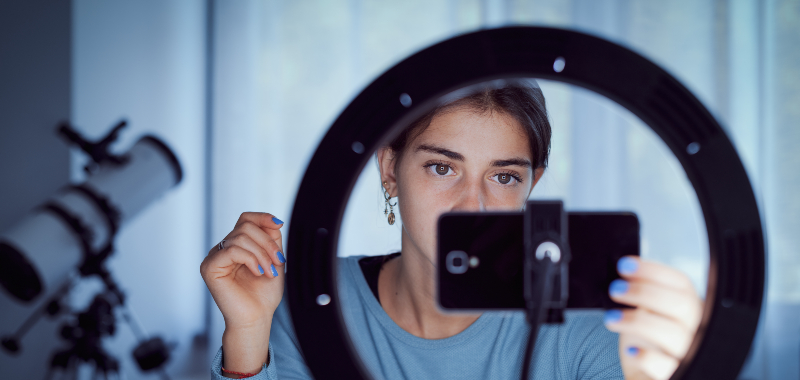
How does the General Law of Audiovisual Communication affect influencers?
The new Law 13/2022, of July 7, General Law of Audiovisual Communication has dedicated a specific section to the so-called “users of special relevance who use video sharing services through a platform”, currently known as “influencers”.
Specifically, Article 94 of the General Law on Audiovisual Communication stipulates that influencers will be considered audiovisual communication service providers for the purposes of compliance with certain obligations set forth in the aforementioned regulation, when they market, sell or organize the commercial communications that accompany or are inserted in their audiovisual content.
The General Law on Audiovisual Communication: key aspects and objectives
The main objective of the new law is to regulate communication in Spain, taking into consideration the new panorama in which new actors and formats have burst in. By means of this law what is intended is to establish clear and concise rules for the provision of the service and exchange of videos through platforms and/or social networks, having to be respected, mainly:
- Human dignity and constitutional rights.
- Gender equality and image of women.
- The protection of minors.
- Intellectual and industrial property.
- The honor, privacy and self-image of individuals, guaranteeing the rights of rectification and reply.
- Not to incite hatred, violence or discrimination against any group or collective.
Which users are included in the General Law on Audiovisual Communication?
As we have mentioned above, users of special relevance or influencers who simultaneously meet the following requirements are included within the scope of this novelties in the new General Law of Audiovisual Communication:
- The service provided by the influencer entails an economic activity by which he/she obtains significant income through this economic activity.
- The influencer or user is responsible for the audiovisual content.
- The service provided by the influencer is aimed at a significant part of the general public and can have a clear impact on them.
- The function of the service is to inform, entertain or educate, the main purpose of the service being the distribution of audiovisual content.
- The service is offered through electronic communications networks and is established in Spain.
How does the General Law on Audiovisual Communication affect influencers?
Influencers that comply with the requirements detailed in the previous point will be considered audiovisual communication service providers and must comply with certain obligations such as the duty to register in the State Registry of Audiovisual Communication Service Providers and comply with the obligations foreseen for the protection of minors (they must have warnings on the type of content they broadcast from their channels, especially, if necessary, on sensitive or pornographic content).
In addition, they must have a set of Codes of Conduct and/or guidelines that they must draw up themselves to guide their work and ensure compliance and enforcement.
At Letslaw, as digital lawyers, we offer advice on particularly relevant user matters with our team of lawyers for influencers. Do not hesitate to contact us with any queries you may have.

Letslaw es una firma de abogados internacionales especializada en el derecho de los negocios.







